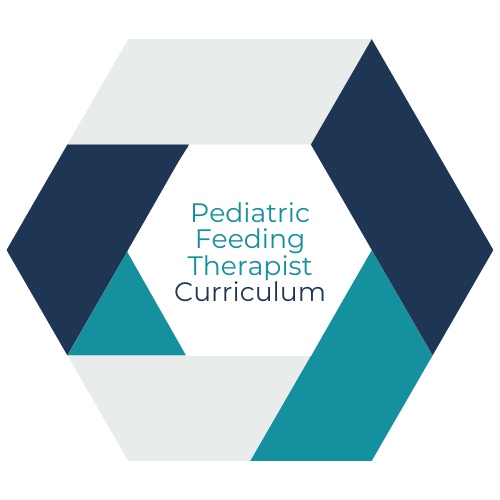
Pediatric Nutrition: A Feeding Therapists Perspective and Role
3 Hours, 0.3 ASHA AND AOTA CEUs
Enroll Now!This course aims to provide a look into pediatric nutrition and the significant impact a pediatric feeding disorder has on a child’s overall nutritional status. This course will explore the multidisciplinary team and the role the team members play in improving a child’s nutritional status. This course will also highlight the pediatric feeding therapist’s role in pediatric nutrition.
MEET OUR PRESENTER:
Christina is a speech-language pathologist specializing in neonatal therapy and pediatric feeding and is a Certified Neonatal Therapist. Christina currently works in a Level 1 trauma center with patients across the lifespan, primarily working in the hospital’s Level III NICU and outpatient clinic with pediatric feeding patients. In addition, Christina completes Modified Barium Swallow Studies and Flexible Endoscopic Evaluation of Swallow with patients of all ages, ranging from neonatal and pediatric through adults, both in the inpatient and outpatient settings. Prior to Christina’s current position, she worked at a Pediatric Rehabilitation Hospital with patients ages 0-21. She was part of a team to develop an Infant Feeding Program for infants to transition from the NICU to the rehabilitation setting in order to continue working on feeding. Christina is passionate about all areas of neonatal and pediatric feeding, striving to continue learning and growing as a clinician, as well as sharing her experiences with other professionals.

TIME ORDERED AGENDA & LEARNING OBJECTIVES
0-60 minutes: Introduction to Nutrition & Multidisciplinary Team - Participants will analyze the definition of pediatric feeding disorders with an emphasis on the nutrition domain and impact on overall development and differentiate the roles of the interdisciplinary team members involved in treating pediatric feeding disorders.
61-120 minutes: Sources of Nutrition & Impact of Nutrition - Participants will differentiate between sources of enteral nutrition, parenteral nutrition, and common nutritional supplements for the pediatric population, participants will evaluate the impact of a pediatric feeding disorder on the child’s overall nutrition.
121-180 minutes: Pediatric Feeding Therapists Role in Nutrition & Case Studies - Participants will point out risk factors for nutritional deficits in the pediatric population, generate appropriate referrals to specialists based on clinical presentation, and development interventions and recommendations for family/caregivers with the child’s nutrition as a contributing factor. Participants will analyze case studies using the information highlighted throughout this course
LEARNING OUTCOMES
After completion of course participants will be able to:
- Analyze the definition of pediatric feeding disorders with an emphasis on the nutrition domain and impact on overall development
- Point out risk factors for nutritional deficits in the pediatric population
- Differentiate roles of interdisciplinary team members involved in the treatment of pediatric feeding disorders
- Differentiate between sources of enteral nutrition, parenteral nutrition, and common nutritional supplements for the pediatric population
- Evaluate the impact of a pediatric feeding disorder on the child’s overall nutrition
- Generate appropriate referrals to specialists based on clinical presentation of pediatric patients
- Develop interventions and recommendations for family/caregivers with the child’s nutrition as a contributing factor
Frequently Asked Questions:
Presenter Information and Disclosures:


This course is offered for 0.3 ASHA CEUs (Advanced Level, Professional Area).
AOTA CEUs are available for 3 contact hours in Service Delivery & Foundational Knowledge.
Please note if any accommodations are needed to access the learning experience or resource materials, please email support@feedthepeds.com
